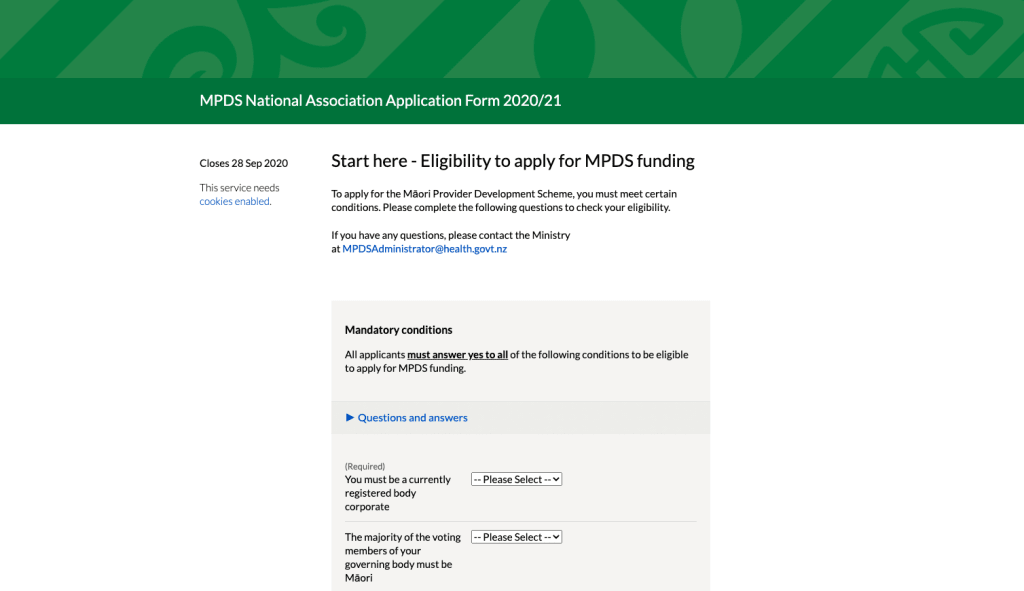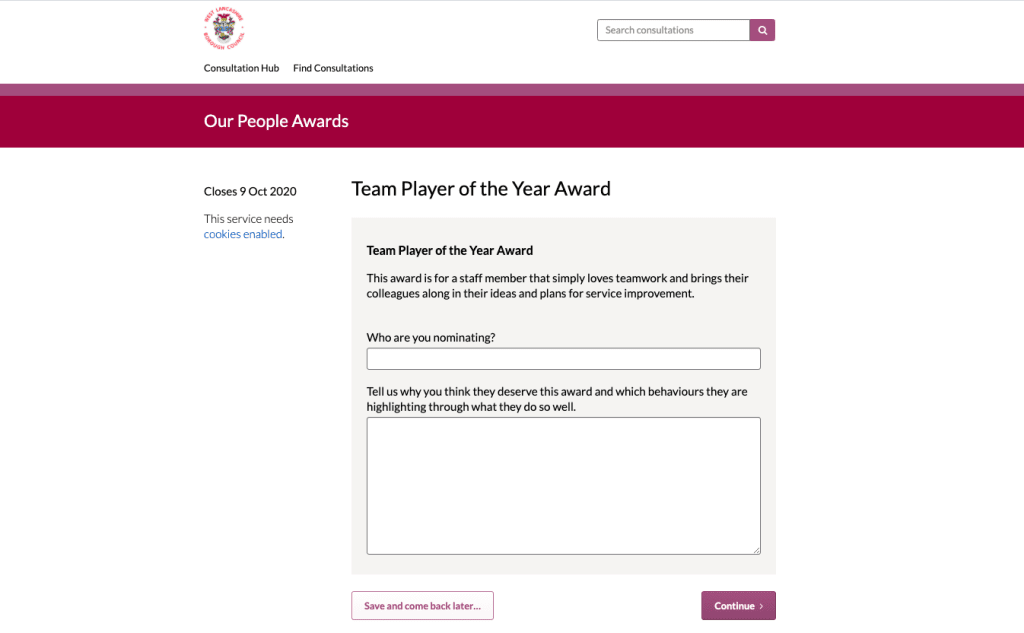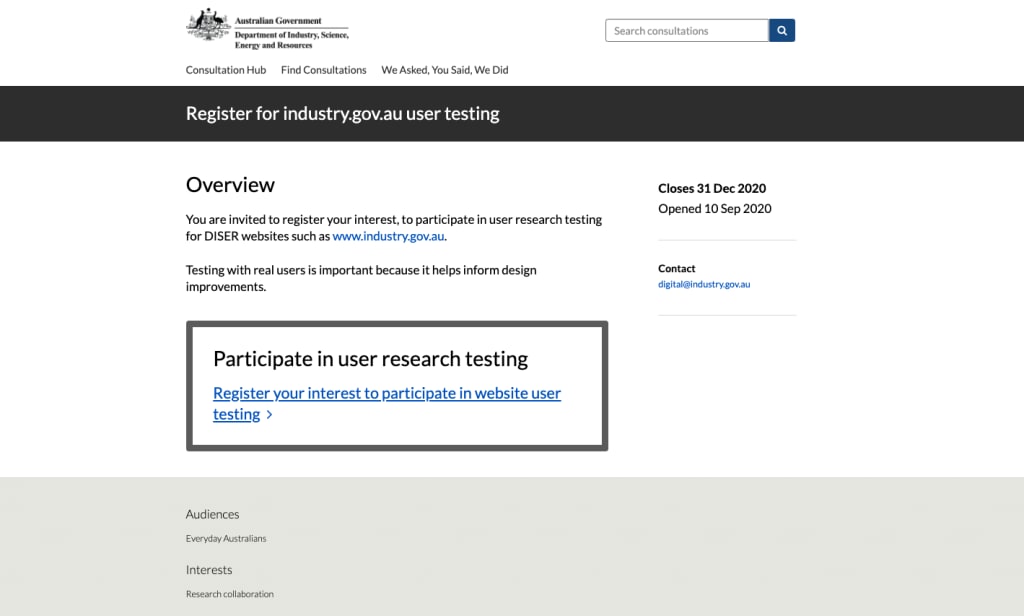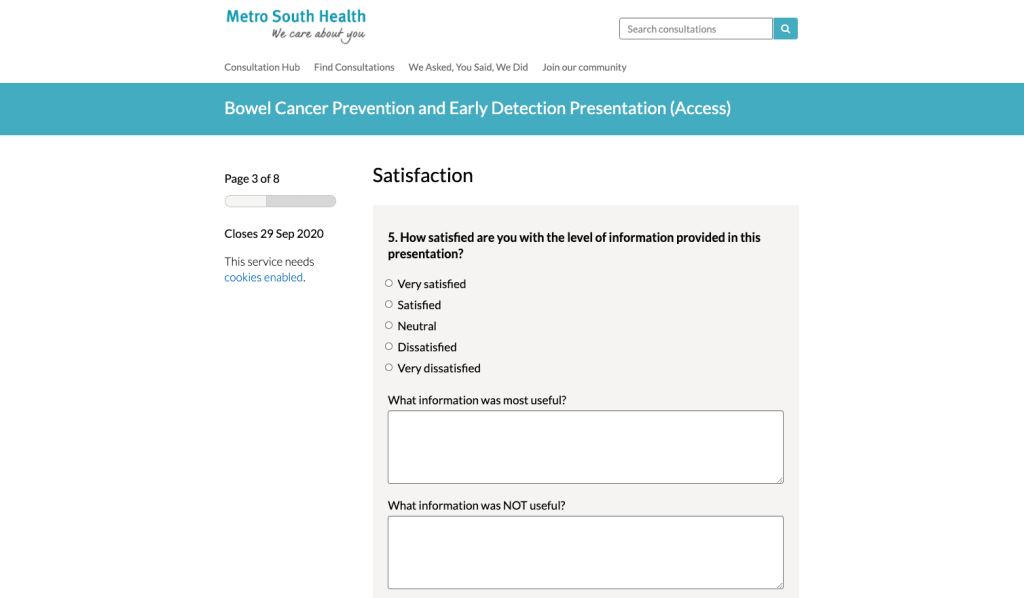
Citizen Space was designed and built for the purpose of running engagement activities online – making it easier for organisations to engage, and lowering the barriers to entry for participation. We humbly think it does a pretty good job of all those things.
But that’s not all it can be used for, and the more our customer base grows, the more frequently we’re pleasantly surprised at the innovative and interesting ways in which people use their Citizen Space sites beyond just consultation.
Its use is unlimited – so whether you’re running 300 activities a year or just a one-off, you can use it in all these different ways at no extra cost. Here are some examples of the versatility of Citizen Space.
Application forms

The Ministry of Health, NZ, are currently using Citizen Space to host an application form for the Māori Provider Development Scheme (MPDS), an annual fund that provides grants to improve the capacity and capability of Māori health and disability providers. Citizen Space has a file upload option, which means applicants can scan and attach supporting documents to their application.
By splitting the form up into chapters, providing plenty of supporting information and embedded documentation, and making good use of different answer components, the Ministry of Health have created a long but easy-to-follow form for what would otherwise have been a complicated and confusing application.
Skip logic, or survey routing, is ideal for application forms too, as it means that the survey will automatically skip any sections that aren’t relevant to the applicant – rather than the applicant having to fumble around with a huge sheaf of paper and/or confusing instructions.
Internal/staff surveys

Citizen Space offers a private survey function, so it makes sense that a lot of our customers use it to run their internal staff surveys as well as public consultations.
Staff surveys tend to be run on off-the-shelf survey tools, which charge a separate license fee for each user. When you’ve got multiple departments all running their own staff surveys, costs can rack up to eye-watering levels pretty quickly.
It allows for unlimited site users, so even if a department isn’t running any public consultations, they can still log into the platform and run internal surveys without any extra cost.
Data collection
Warwickshire County Council in the UK was the first example we’ve come across of this. Here’s site administrator Lucy Rumble explaining their data collection process:
“Our audit of case files within our social work area had previously been done in a paper-based format. When monitoring and auditing we basically need to ask somebody questions, some of which are optional and some of which are required.
Citizen Space offers really good data security, and when you’re working with remote teams and trying to share and collect information [you need a safe way of doing that as it’s sensitive information.] We piloted using Citizen Space instead of paper, and we’ve been doing it for about a year in social care and various other quality-assurance data collection exercises.”
Read the full interview with Lucy about Warwickshire’s Citizen Space usage.
Registration (of interest/for events)

This is another use case that would ordinarily be carried out by using an off-the-shelf survey tool, so organisations can save a lot of money on licenses by using Citizen Space instead. Got an event coming up? Get people signed up or, in the case of the Australian Department of Industry, Science, Energy and Resources, register interest for taking part in user research testing.
The simple administrative side of Citizen Space enables you to quickly sift through the data you’ve received so you can keep track of signups with ease. We also often see organisations running feedback surveys post-event, like this survey from Metro South Health.

Information boards

The Environment Agency, UK, frequently uses Citizen Space as a virtual information board: they do this by going through the process of opening a consultation, but removing the call to action at the bottom where respondents would ordinarily click through to a survey. They do this for areas that aren’t being consulted upon, or aren’t at the moment but will be in the future, for example this early-days flood defence project information page for the Hurst Spit in Hampshire, UK. They also use information pages as opportunities to expand on specific timelines and updates for projects on which consultations have closed.
This is just a few of the ways in which Citizen Space can be used. The use cases are basically limitless – how many types of form can you think of? – and with selling points like watertight data security, simple data analysis and the highest accessibility standards it’s the tool of choice for more than just consultation and engagement. Given the creativity of our customers I’m sure many more use cases will pop up before too long.
Citizen Space is a citizen engagement platform trusted by government around the world. Government organisations and public bodies use Citizen Space to connect with more citizens, increase engagement and improve processes.
To learn more about what Citizen Space can do for your organisation, book a free demo and we’ll walk you through it.